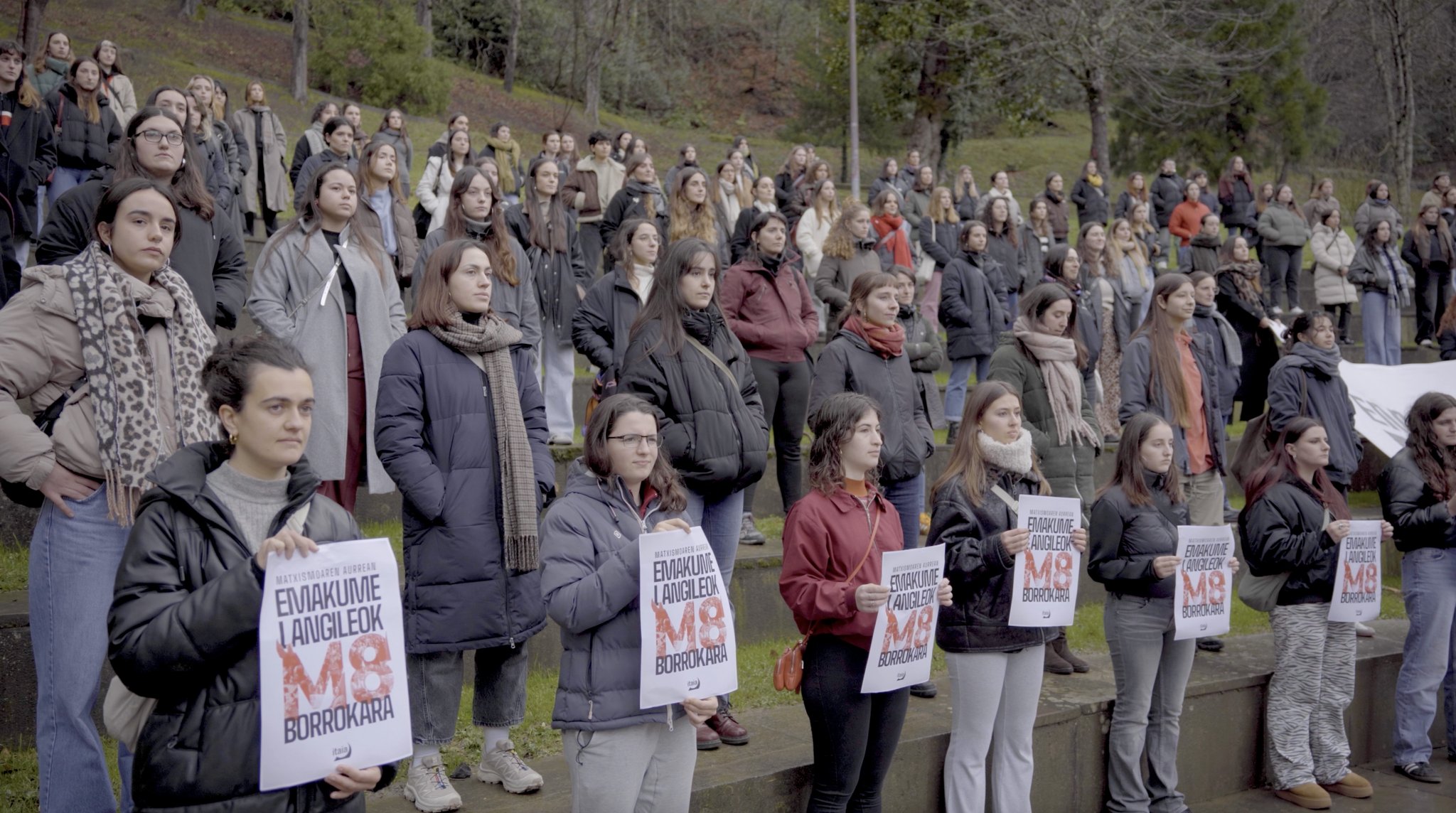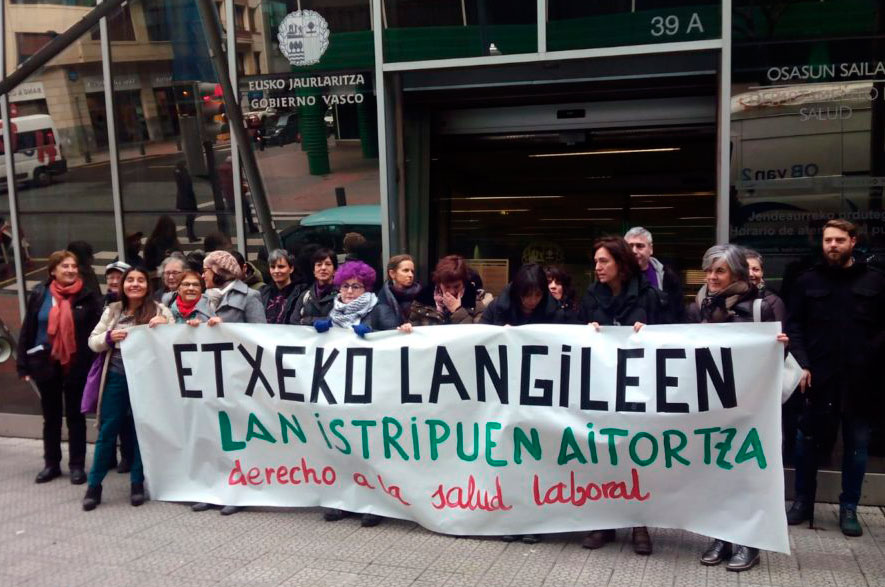The crisis worsens the conditions of working women, according to the International Labour Organization (ILO)
- The global crisis that has erupted with COVID-19 has mainly affected the feminized sectors. The greatest job losses have occurred in women, who have fallen more in home-care tasks.

Equality of women and men in the world of work has been hampered since the beginning of the coronavirus pandemic. The International Labour Organization (ILO) has stressed on Tuesday that the economic crisis generated by the health emergency has more affected sectors with more workers, destroyed more female employment than men and mobilized all care for children, older and dependents to households by the closure of education and care centres.
All this work has not been distributed in a balanced manner in the pandemic, as they have explained that the impact of the pandemic on working women has been "disproportionate". There is a risk of “losing the modest advances” that have been made in the field of gender equality in recent decades and of “increasing work-related gender inequalities”, according to the latest ILO report on the impact of the pandemic on the world of work. They have indicated that the damage to employment caused by the pandemic has been far greater than expected by the organization. Globally, hours lost in the second quarter of 2020 amounted to 14%, resulting in the destruction of 480 full-time jobs (40 hours a week), resulting in the loss of 365 million jobs.
Hit by unemployment
The organization has also offered more worrying data, as the presence of women in the labour market remains lower than that of men and economic activity is permeated by obstacles such as the wage gap. This latest crisis has also a clear feature, as women’s employment is at greater risk than men’s, particularly because of the consequences of the crisis on the services sector.
Globally, of all employed women, almost 510 million, or 40 per cent, work in the most affected sectors. These include hospitality and food services, wholesale and retail trade, real estate, trade, administrative activities and manufacturing. The proportion of men employed in these areas is 36.6%, the rest being women.
Devaluation
In particular, the ILO has stressed that anti-pandemic measures have been very harmful to people working in household services, and that the protagonists in this sector are women. According to the body's estimates of 4 June, 55 million people, 72.3% of household workers worldwide, "in the absence of an effective closure and coverage of social security are at high risk of job and income loss".
In the Spanish State, for example, domestic workers still have no recognition of their right to unemployment. The Government accepted the temporary subsidy for them when the pandemic was imminent, but only for those in a regular situation. Among informal workers, there are also more women globally, most notably migrants, who have remained in a situation of extreme vulnerability during this crisis. States have banned traditional movement, which has hampered the work of these people and, moreover, have no option to social protection.
Relative recovery
By way of example, the ILO stresses that in all cases the reduction in year-on-year employment in April and May has been "significantly greater" for women than for men. In Canada, for example, the reduction in employment for women was 16.5%, while for men it was 13.8%. In the Spanish State, Minister José Luis Escriva stressed that the loss of employment recorded in the first months of the pandemic affected men and women “to a similar extent”, with 524,000 fewer men and 423,000 fewer women. However, the recovery of employment registered until mid-June has left many women behind: The number of people employed has risen to 226,000 and that of women to 62,000.
Burden of surveillance
The risk to women’s jobs is not limited to equal work. Closures of educational centres and centres for persons in situations of dependency have returned all family care tasks to households. Once at home, these tasks fall on women, according to Spanish state studies. Prior to the pandemic, the ILO recalls that "women assumed about three-quarters of all unpaid care work". The time dedicated to caring for women "is exacerbated when children are at home", as has happened during confinement. The institution also highlights the “special difficulty” of single-parent families, mostly women, with 78.4% of the cases.
Graduation of conditions
Flexible working hours and the implementation of teleworking have been some of the measures that many companies have taken during these months of confinement, "which may be more common in the future", according to the ILO. The organisation has called on countries to ensure "equal opportunities" in telework between men and women, as well as "appropriate treatment of safety and health at work, including domestic violence". The ILO recalls that "previous crises have shown that when women lose their jobs they become more involved in unpaid care work and when jobs are scarce, women are often denied job opportunities available to men." It has therefore warned that this latest crisis "threatens to end women's incomes in the labour market, as well as positive changes in the distribution of unpaid care".
Londres, 1944. Dorothy izeneko emakume bati argazkiak atera zizkioten Waterloo zubian soldatze lanak egiten ari zela. Dorothyri buruz izena beste daturik ez daukagu, baina duela hamar urte arte hori ere ez genekien. Argazki sorta 2015ean topatu zuen Christine Wall... [+]
Martxoaren 8a hurbiltzen ari zaigu, eta urtero bezala, instituzioek haien diskurtsoak berdintasun politika eta feminismoz josten dituzte, eta enpresek borroka egun hau “emazteen egunera” murrizten dute, emakumeei bideratutako merkatu estereotipatu oso bati bidea... [+]
Martxoak 8aren izaera iraultzailea berreskuratzeko deia egin du Itaia emakumeen antolakunde sozialistak. Irene Ruiz Itaiako kideak azaldu digunez, “oldarraldi erreakzionarioaren eta matxismoaren aurrean proposamen iraultzailea hauspotu eta kontzientzia sozialista... [+]
1958an, emakume baserritarrek Donostiako Erdialdea hartu zuten, esnea saltzea galarazi zitzaiela salatu, eta baserritarren eskubideak aldarrikatzeko. Administrazioak esnearen esklusibotasuna Gurelesa enpresari eman zion, eta baserritarrek Bretxan saltzeari utzi behar izan... [+]
Equality, like pregnancy, exists or does not exist. When there is no equality, there is a difference, that is what you can measure and value. Perhaps the consequences of equality may be unfair to some, but this would place the debate on the consequences, not at all on equality... [+]
Errenteria (Gipuzkoa), 1892. In the caves of Aizpitarte the first archaeological excavations of Gipuzkoa were carried out, at the hand of the group led by Count Lersundi. Eleven years later, in 1903, the king of Spain, Alfonso XIII, visited the site and with this excuse... [+]
I don't know if you've noticed, but lately, reactionary and conservative messages are spreading across social media. One of them is the trend of the tradwife. That word is the abbreviation of the traditional concept of wifi, that is, the traditional wife. This movement proposes to... [+]





















